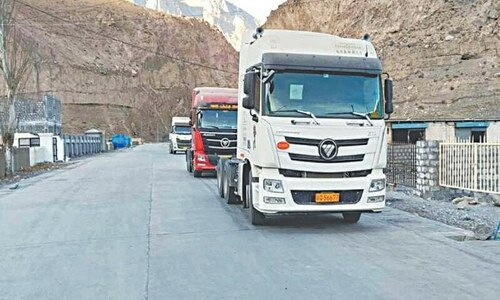CONDUCTING fair and free elections, ensuring transparency before and during polls, is the sole responsibility of the Election Commission of Pakistan. This constitutional body has been playing its role since its birth in 1956, though its performance has not remained exemplary or satisfactory.
Article 5 of Representation of People Act 1976 binds all the executive authorities in the federation and in provinces to render immediate help to the ECP as and when required.
However, any help particularly from the local or district administration is taken as a grant of favour and not as their constitutional duty by ECP officers.
If any of the executive authorities such as the deputy commissioner, local administration or assistant commissioner of a particular administrative subdivision does not show interest in electoral job or flouts the directives of the ECP in rendering the required help, the commission or the election commissioner can suspend him under Section 7 (6) of the same Act and can direct his competent authority to initiate disciplinary action against him.
Recently I was appointed monitoring officer for a by-election in a constituency in Sindh. I corresponded officially to the deputy commissioner of the district concerned for providing a vehicle and an adequate security, invoking Article 5. No reply was furnished for three days.
Disgruntled as I was, I began writing a report to high-ups on the grim situation and on cold-shoulder treatment by the local administration.
However, I was politely told by my colleague monitoring officer and the returning officer for the by-election that ‘I was perhaps digging my own grave’. They said: “The ECP will never take action against the deputy commissioner. Instead, there are chances that you may face the wrath of the high-ups.”
I dropped the idea and began searching on the punishments ECP might have handed down to defaulters and violators of its directives.
I was surprised not a single case regarding punishing a bureaucrat was found in the long history of the ECP. All this clearly means that not a single time in Pakistan’s history has any officer of the executive (DC, SSP, TMO, tehsildar and others) throughout the country been found guilty of involvement in rigging the elections, disobeying the commission’s orders or flouting the directives of the commission. How strange!
This is the major reason why the ECP is still seen as a toothless body by the majority of our citizens, in general, and by executive authorities, in particular.
The ECP has never invoked section 103-A of the same Act which empowers it to punish any officer or public functionary for contempt.
Ensuring free, fair and transparent elections is the primary responsibility of the ECP, and a judgment of the Supreme Court in the Workers Party case has also stated that the ECP can take pre-emptive measures in ensuring that the code of conduct is not violated.
However, there seem to be a hundred years for the ECP to wake up from its dead slumber.
NAME WITHHELD ON REQUEST Sukkur













































Dear visitor, the comments section is undergoing an overhaul and will return soon.